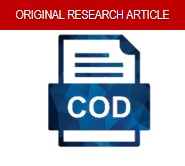Preservation of Protected Forest Functions
The Effectiveness of Customary Sanctions (Givu) in To Kulawi
DOI:
https://doi.org/10.46924/jihk.v6i2.244Keywords:
Customary Sanctions (Givu), Conservation, Protected ForestAbstract
This study aims to examine the role of the To Kulawi traditional institution and assess the implementation of customary sanctions (Givu) in preserving the function of protected forests in Sigi Regency. It is expected to contribute to strengthening the To Kulawi traditional institution. The research employs an empirical legal approach, focusing on the practical application of law (law in action) within society. The findings indicate that the existence and role of the To Kulawi traditional institution are essential for preserving the function of protected forests and implementing customary sanctions (Givu) in Sigi Regency. The application of these customary sanctions within the To Kulawi indigenous community has been effective and is widely accepted as a governing norm for forest preservation in the region. Therefore, it is recommended to enhance the recognition and protection of the To Kulawi traditional institution through policies enacted by regional and village governments, such as regional or village regulations.
Downloads
References
Journals
Djafar, E M, T F Widayanti, M D Saidi, A M Muin, and Ratnawati Ratnawati. “Forest Management to Achieve Sustainable Forestry Policy in Indonesia.” In IOP Conference Series: Earth and Environmental Science, 1–11, 2023. https://doi.org/10.1088/1755-1315/1181/1/012021.
Hamzah, Hamzah, Didik Suharjito, and Istomo Istomo. “Efektifitas Kelembagaan Lokal Dalam Pengelolaan Sumber Daya Hutan Pada Masyarakat Nagari Simanau, Kabupaten Solok.” Risalah Kebijakan Pertanian Dan Lingkungan 2, no. 2 (2015): 117–28. https://doi.org/10.20957/jkebijakan.v2i2.10979.
Hendra, Hendra. “Totua Ngata Dan Konflik: Studi Atas Posisi Totua Ngata Sebagai Lembaga Adat Di Kecamatan Marawola.” Antropologi Indonesia: Indonesian Journal of Social and Cultural Anthropology 34, no. 1 (2024): 15–28. https://doi.org/10.7454/ai.v34i1.3194.
Humaedi, Muhammad Alie. “Tradisi Pelestarian Hutan Masyarakat Adat Tau Taa Vana Di Tojo Una-Una Sulawesi Tengah.” Jurnal Penelitian Sosial Dan Ekonomi Kehutanan 11, no. 1 (2014): 91–111. https://doi.org/10.20886/jphka.2014.11.1.91-111.
Lestawi, I Nengah, and Dewi Bunga. “The Role of Customary Law in The Forest Preservation in Bali.” Journal of Landscape Ecology 13, no. 1 (2020): 25–41. https://doi.org/10.2478/jlecol-2020-0002.
Magdalena, Magdalena. “Peran Hukum Adat Dalam Pengelolaan Dan Perlindungan Hutan Di Desa Sesaot, Nusa Tenggara Barat Dan Desa Setulang, Kalimantan Timur.” Jurnal Penelitian Sosial Dan Ekonomi Kehutanan 10, no. 2 (2013): 110–21. https://doi.org/10.20886/jpsek.2013.10.2.110-121.
Maladi, Yanis. “Eksistensi Hukum Adat Dalam Konstitusi Negara Pasca Amandemen.” Mimbar Hukum 22, no. 3 (2010): 450–64. https://doi.org/10.22146/jmh.16235.
Min, Suyeon, Hansol Lee, Jeongeun Son, and Mi Sun Park. “Structural Policy Coordination for Forest Ecosystem Services Management in The Legal Accountability System.” Forest Policy and Economics 166 (2024): 103282. https://doi.org/10.1016/j.forpol.2024.103282.
Rulianto, Septian, Adam Malik, and Andi Sahri Alam. “Motivasi Masyarakat Desa Mire Terhadap Perlindungan Hutan Di Kawasan Hutan Lindung Kecamatan Ulubongka Kabupaten Tojo Una-Una.” Jurnal Warta Rimba 6, no. 2 (2018): 1–37.
Proceedings
Utami, Nofi Sri, Ahmad Syaifudin, Muhibin Muhibin, and Diyan Isnaini. “Government Responsibilities Related to Converting Forest Functions to Agricultural Land: Study in Batu Malang City.” In E3S Web of Conferences, 1–8, 2023. https://doi.org/10.1051/e3sconf/202344004003.
Books
Azhary, Muhammad Tahir. Negara Hukum : Suatu Studi Tentang Prinsip-Prinsipnya Dilihat Dari Segi Hukum Islam, Implementasinya Pada Periode Negara Madinah Dan Masa Kini. Jakarta: Sinar Grafika, 2003.
Direktorat Pemberdayaan Komunitas Adat Terpencil Republik Indonesia. Atlas Nasional Persebaran Komunitas Adat Terpencil. Jakarta: Direktorat Pemberdayaan Komunitas Adat Terpencil Republik Indonesia, 2004.
Hardjasoemantri, Koesnadi. Aspek Hukum Peran Serta Masyarakat Dalam Pengelolaan. Yogyakarta: Gadjah Mada University Press, 1993.
Irwansyah, Irwansyah. Penelitian Hukum: Pilihan Metode Dan Praktik Penulisan Artikel. Edited by Ahsan Yunus. Yogyakarta: Mirra Buana Media, 2020.
Nurtjahjo, Hendra. Legal Standing Kesatuan Masyarakat Hukum Adat: Dalam Berpekara Di Mahkamah Konstitusi. Jakarta: Salemba Humanika, 2010.
Winardi, J. Kepemimpinan Dalam Manajemen. Jakarta: Rineka Cipta, 2000.
Interview
Djiloy, Rudolf. “Interview with Head of South Kulawi District.” 2024.
Marzuki, Bahar. “Interview with Chairman of the Tompi Bugis Village Traditional Institution, South Kulawi District.” 2023.
Tarro, Jackson S. PH. “Interview with Secretary of South Kulawi District.” 2023.
Suminton, Suminton. “Interview with Chairman of the South Kulawi District Traditional Council.” 2023.
Downloads
Published
Issue
Section
License
Copyright (c) 2024 Insarullah Insarullah, Imran Imran, Ikbal Ikbal, Arfanita Arfanita

This work is licensed under a Creative Commons Attribution 4.0 International License.
Authors who publish with this journal agree to the following terms:
- Copyright on any article is retained by the author(s).
- The author grants the journal, the right of first publication with the work simultaneously licensed under a Creative Commons Attribution License that allows others to share the work with an acknowledgment of the work’s authorship and initial publication in this journal.
- Authors are able to enter into separate, additional contractual arrangements for the non-exclusive distribution of the journal’s published version of the work (e.g., post it to an institutional repository or publish it in a book), with an acknowledgment of its initial publication in this journal.
- Authors are permitted and encouraged to post their work online (e.g., in institutional repositories or on their website) prior to and during the submission process, as it can lead to productive exchanges, as well as earlier and greater citation of published work.
- The article and any associated published material is distributed under the Creative Commons Attribution 4.0 International License



 Sinta ID:
Sinta ID: 


















